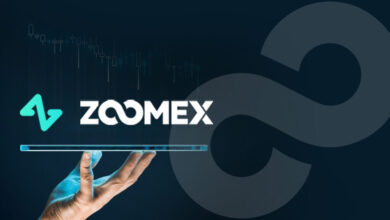Why Blockchain is the Cornerstone of Digital Innovation

In recent years, the concept of blockchain has transcended its initial association with cryptocurrencies to become a pivotal technology in the digital landscape. Characterized by its decentralized, secure, and transparent nature, blockchain technology offers transformative potential across diverse sectors, ranging from finance and supply chain management to healthcare and public administration. This article aims to explore how blockchain is underpinning the next wave of digital innovation, reshaping traditional systems, and fostering an era of unprecedented trust, efficiency, and innovation.
The Fundamentals of Blockchain Technology
At its core, blockchain is a distributed ledger technology that records transactions across multiple computers to ensure security and transparency. Blocks of data are chained together chronologically to form an immutable record that is accessible to all participants in the network. This decentralized nature eliminates the need for intermediaries, significantly reducing the risk of data tampering and fraud.
The cryptographic algorithms embedded within the blockchain enhance its security features, ensuring that once data is recorded, it cannot be altered retroactively. This makes blockchain an ideal solution for industries that require high levels of data integrity. Furthermore, its transparency allows for greater accountability, making it easier to track and verify transactions. Stay updated on the latest updates in the Blockchain industry by doing research or following news sources and blogs such that cover the topic. It’s important to stay informed about this rapidly evolving technology.
Transforming the Financial Sector
One of the most significant impacts of blockchain technology has been in the financial sector. Blockchain allows for the seamless and secure transfer of digital assets, reducing the need for traditional banks and financial institutions. This not only accelerates transactions but also cuts down on the associated fees, making financial services more accessible to a broader audience.
Blockchain’s transparency and security features are revolutionizing areas such as auditing and compliance. Smart contracts, self-executing contracts with the terms directly written into code, are helping to automate and enforce contractual agreements, thereby reducing the chances of disputes and enabling more efficient financial operations.
Revolutionizing Supply Chain Management
Supply chain management is another area where blockchain is making a substantial impact. By providing an immutable and transparent ledger for tracking goods from production to delivery, blockchain enhances traceability and accountability. This ensures that products are genuine and not tampered with, thereby boosting consumer confidence.
Blockchain can streamline supply chain operations by reducing paperwork, improving inventory management, and enabling real-time tracking of shipments. This leads to cost savings, improved efficiency, and better relationships between suppliers, manufacturers, and retailers. When businesses are able to operate more efficiently, it leads to greater innovation and competitiveness in the market. Don’t be surprised if you start to see blockchain technology becoming commonplace in supply chain management processes across various industries.
Enhancing Healthcare Systems
The healthcare sector stands to benefit enormously from the adoption of blockchain technology. From securing patient records to enabling better data sharing between healthcare providers, blockchain can significantly enhance data integrity and patient privacy. By ensuring that patient records are immutable and accessible only to authorized personnel, blockchain can prevent data breaches and unauthorized access.
Blockchain can facilitate the efficient handling of medical records and streamline administrative processes, freeing healthcare providers to focus more on patient care. It also opens the door for new healthcare models such as personalized medicine, where secure, interoperable data can enable more precise and effective treatment plans. Most importantly, the use of blockchain in healthcare can ultimately lead to better outcomes for patients. This is just the beginning of how blockchain technology can revolutionize the healthcare sector.
Optimizing Public Administration
Blockchain technology is poised to revolutionize public administration by enhancing transparency and reducing corruption. By providing a transparent and immutable record of governmental activities, blockchain ensures that public resources are used efficiently and responsibly. This can lead to increased public trust and a more engaged citizenry.
Blockchain can streamline various administrative processes, such as elections, land registry, and identity verification. By eliminating the need for intermediaries and reducing the potential for human error, blockchain enables more efficient, secure, and transparent public services. This transformation not only saves costs but also improves the overall quality of governance. Notably, blockchain has the potential to enhance democratic processes and strengthen democracy itself.

Blockchain technology is a game-changer in the digital world. Its decentralized nature, combined with its robust security and transparency features, makes it an ideal solution for industries that require high levels of data integrity and trust. From transforming traditional systems in finance and supply chain management to enhancing healthcare and public administration, blockchain is at the forefront of digital innovation. As we continue to see advancements in this technology, it’s important to stay informed about its potential impact on our society and economy. The possibilities are endless, and we can expect to see even more groundbreaking applications of blockchain in the future. Keep learning about this revolutionary technology and its evolving role as the cornerstone of digital innovation.





